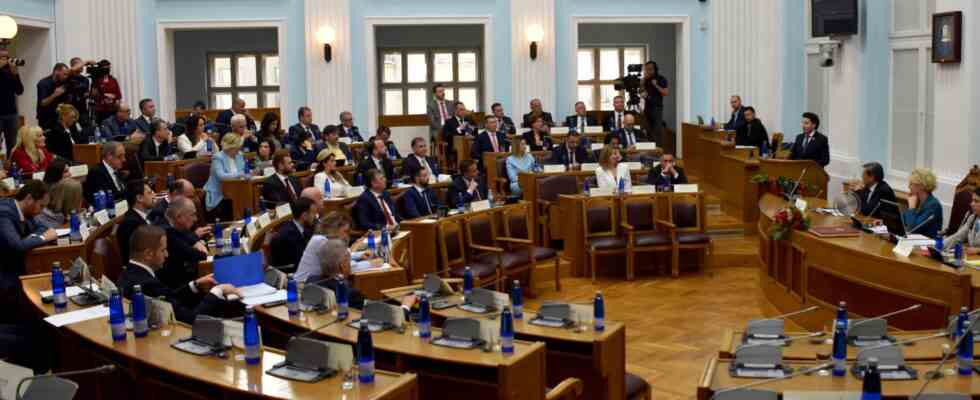As of: 04/28/2022 9:31 p.m
The parliament in Montenegro has elected a new, pro-Western government. The minority cabinet replaces the majority pro-Serb government, which parliament had voted no confidence in.
The Montenegrin parliament has elected a new, pro-Western government. 45 out of 81 MPs voted in favor and three against the decision. However, the eco-liberal Prime Minister Dritan Abazovic heads a minority government. The colorful coalition of Greens, Social Democrats, ethnic Albanian and Bosnian parties and a pro-Serbian party is dependent on the toleration of President Milo Djukanovic’s DPS party.
The new Prime Minister Abazovic heads a minority cabinet.
Image: dpa
“The rule of law and economic development will be the two central pillars of the new government,” said Abazovic in his program statement before the vote. His cabinet will “unblock the institutions” and press ahead with negotiations on EU accession. The session of the parliament had been moved to the historical capital Cetinje.
The deputies of the other pro-Serb parties boycotted them. They considered the circumstances of their draft to be unlawful.
Government overthrown by vote of no confidence
The Abazovic government replaces a predominantly pro-Serb government under Prime Minister Zdravko Krivokapic. His successor had belonged to her as Vice Prime Minister. Irreconcilable differences between pro-Serbs and pro-Western liberals had paralyzed this government. The change of government finally made it possible for Abazovic to break with Krivokapic.
For more than 30 years, the pro-Western President Djukanovic and his DPS party had determined the politics of the country, which he had led to negotiated independence from Serbia in 2006. At the same time, his rule was criticized for corruption, links to organized crime and attacks on independent journalists. In the parliamentary elections in August 2020, the DPS lost its majority in parliament for the first time and had to go into opposition.
Krivokapic’s government, formed in December 2020, included grassroots movements such as Abazovic’s URA party, but was overwhelmingly pro-Serbian. A pro-Serbian agenda soon took the place of the rule of law and European integration. The accession negotiations with the EU, which began in 2012, have not progressed in the last two years.

